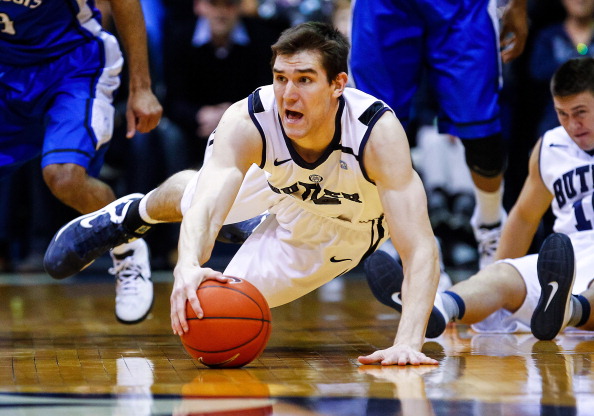
One year of the Underdog!
I don’t know if anyone realized it, but 365 days ago today I published the first post on this site. I came in the with idea that maybe my mom would read it (she actually didn’t know about it until about three months in) and a couple of my friends would skim it and patronize me (which probably still happens). Little did I know that The Underdog would amass well over 10,000 views in the last year across 56 countries (these are real numbers!!) and it would lead me to the opportunity to write on other websites (shoutout to Gotham Sports Network and Bronx Pinstripes). Basically, I would like to thank anyone who’s ever read one of my articles for helping me out so much.
Anniversary week got me thinking about the very title of this site. What does it mean to be an underdog? It doesn’t necessarily mean winning when the odds are stacked against you. To me, it means showing courage, determination, passion, and grace in the face of adversity, and making a lasting impact on everyone around you.
The underdog spirit is embodied perfectly, I think, in former Butler center Andrew Smith, who passed away earlier this month after a two-year battle with cancer.
Smith was on the two Butler teams that made it to back-to-back Final Fours in 2010 and 2011. He wasn’t the star, though. He was a reserve for the first team in his freshman year, then started as a sophomore for the 2011 team that lost to Connecticut. Smith averaged 8.5 points and 5.6 rebounds per game in 32 starts, far from “star” caliber numbers that Matt Howard had that year, who averaged 16 points and eight rebounds per contest. However, by all accounts, Smith was the heart and soul of the team. Now, that is said about a lot of athletes, but not usually about a guy that went on to work for a financial services company after his time in college.
Celtics coach Brad Stevens, who coached Smith at Butler, left his team to go down to Indianapolis for the funeral. He tweeted this of Smith:
When Smith was diagnosed with non-Hodgkins lymphoma in January of 2014, it went largely unnoticed by the world of basketball because of his minute stature in the game. That shouldn’t be. Team sports pride themselves on being a brotherhood, a fraternity of sorts, but for the most part the guys like Smith, who are deserve the respect that comes with being a basketball player because of how he inspired his teammates and touched the basketball world at his death.
We love college dropouts. We cherish and laud the basketball players that never get a degree, then make millions for being naturally blessed with athleticism that 99 percent of people don’t have. Children grow up to try to be like the three-hundredths of one percent of high school seniors who make it to the NBA, instead of going to college to focus on their academics and future career paths. Andrew Smith needs to be a model of what kids should try to be; he got to play, got his degree, got a job, and lived life the way he wanted to for 25 years. Not only did he have his priorities in order, but he was able to live life to the fullest because of his priorities.

Smith wasn’t a rags-to-riches story like LeBron James or Caron Butler (who’s story is also really interesting). He was born and raised in a small town in Indiana to loving parents and got a good education. His underdog story lies in his backseat role on the Final Four teams, his arduous and courageous battle with cancer, and his impact on everyone around him. Courage, passion, and grace in the face of adversity. Smith was definitely an underdog in his time with us.
“As an Academic All-American, he represented the best of Butler in the classroom and on the court,” Butler said in a statement after Smith’s passing. “Above all else, what made Andrew special was the way that he genuinely cared for others. Within his large frame was an even larger heart. He is, was, and always will be a Bulldog.”
Smith was, and always will be, a superior role model and underdog who did everything the right way. I’m honored to be able to keep part of Smith’s spirit alive through this website, and I hope the next 365 days are as fruitful as the last.
